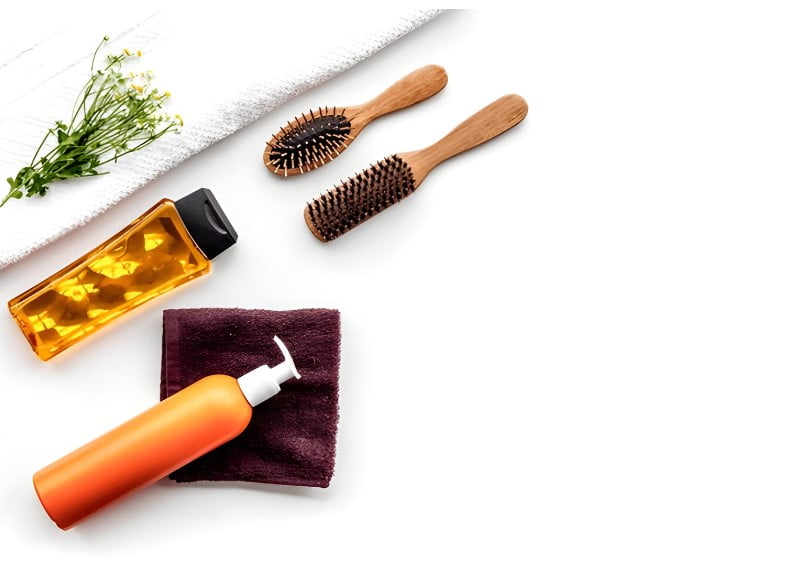How to Transition to Natural Hair Care Products
Embracing natural hair care products can be transformative for the health, vitality, and longevity of your hair. Moving away from products laden with harsh chemicals toward a more natural hair care regimen may feel daunting at first, but it is entirely achievable with the right guidance. This article outlines a practical pathway to help you transition effectively, detailing each step to make the journey as smooth as possible. You’ll soon discover that nurturing your hair with natural products not only benefits hair growth and scalp health but also has a lasting impact on the environment.
Key Takeaways:
- Switching to natural hair care is a gradual process that involves choosing the right products and adapting to new routines.
- Ingredient knowledge is essential to recognize what your hair and scalp truly need.
- Detoxing your hair is the first step to prepare it for the full benefits of natural products.
- Learning about different hair textures and their unique needs can enhance your natural hair care journey.
- Consistency in routine helps to see results over time, as natural products work gradually.
1. Understanding the Benefits of Natural Hair Care
Shifting to natural hair care products may sound appealing, but understanding why this transition matters is key. Natural ingredients, unlike many synthetic options, nourish the scalp without stripping away natural oils. This allows hair to thrive, encouraging growth and improving the overall health of both short hair and long hair.
Natural hair care also means fewer irritants and allergens, making it an excellent choice for those with sensitive skin. By avoiding sulfates, parabens, and synthetic fragrances, you reduce the risk of hair breakage and dryness, leaving your locks more resilient and lustrous.
2. Preparing Your Hair for the Transition
Before diving into natural products, it’s important to prepare your hair. Start by weaning off any chemical-heavy products gradually. If you currently use sulfates or silicones, consider tapering off these products to allow your hair and scalp to adjust.
During this phase, focus on regular deep conditioning and moisturizing to mitigate any dryness or frizz that might arise in the initial stages. Proper preparation helps your hair adapt more quickly, making the transition smoother.
3. Detoxing Your Hair

Detoxing your hair is a critical first step in transitioning to natural products. This process involves cleansing your scalp and hair of built-up product residues, excess oils, and impurities. A clay mask, such as bentonite or kaolin clay, can effectively draw out toxins without the harshness of traditional clarifying shampoos.
Natural apple cider vinegar rinses can also work wonders to balance your scalp’s pH. This detoxification phase often lasts a few weeks but is essential for enhancing hair growth and creating a clean slate for natural products to perform optimally.
4. Researching Ingredients That Suit Your Hair Type
When selecting natural hair care products, ingredient awareness is paramount. Different natural oils, herbs, and extracts serve unique purposes, so understanding what your hair needs can lead to healthier strands and a happier scalp.
For instance, if you have dry or coarse hair, ingredients like shea butter, argan oil, and jojoba oil can be highly nourishing. Meanwhile, lighter oils like grapeseed or almond oil may be better suited for fine or short hair types. Identify your hair type and choose ingredients that cater to its specific needs.
5. Establishing a Routine for Long-Term Success
Consistency is key to witnessing the transformative power of natural products. Establish a routine that includes regular cleansing, conditioning, and moisturizing. This structured regimen not only encourages hair growth but also allows you to notice how your hair responds to specific products.
Try to wash your hair no more than once or twice a week to maintain natural oils, which are vital for both short and long hair. Natural hair care emphasizes less frequent washing and more nourishing, hydrating practices.
| Routine Step | Product Type | Frequency |
|---|---|---|
| Detox | Clay mask or apple cider vinegar | Every 2 weeks |
| Cleanse | Sulfate-free shampoo | Once a week |
| Condition | Natural conditioner with oils | Every wash |
| Deep Moisturize | Hair mask or treatment | Bi-weekly |
| Oil Treatment | Coconut, argan, or jojoba oil | Weekly |
6. Embracing a Gentle, Minimalist Approach
One common misconception is that more products equate to better results. However, minimalism is often the secret to natural hair care. Overloading your hair with multiple products can lead to build-up, even if they’re all-natural. Begin with a few essentials and slowly incorporate other products as you observe your hair’s response.
A gentle, minimalist approach allows your scalp to adjust and makes the transition period less overwhelming.
7. Observing and Adapting to Changes

During the transition, your hair may go through a few weeks of adjustment. It’s not uncommon to experience a texture change or extra dryness as your scalp recalibrates. Be patient and observant; these changes are a natural part of the process and signal that your hair is detoxifying.
Track your hair’s progress weekly to see what’s working and what’s not. You may need to tweak your routine or products to achieve optimal results.
8. Prioritizing Scalp Health
Natural hair care emphasizes scalp health, which is fundamental for hair growth. Massaging the scalp with natural oils, such as rosemary or peppermint oil, stimulates blood circulation and promotes hair growth. It also helps in maintaining a balanced scalp environment.
A healthy scalp leads to stronger roots and minimizes hair shedding. Regular scalp massages, gentle brushing, and hydrating leave-in conditioners keep your hair base resilient and thriving.
9. Balancing Moisture and Protein
Moisture and protein balance is critical for maintaining hair strength and elasticity. Natural hair care products often contain rich moisturizing ingredients, but protein treatments are also beneficial for strengthening.
Incorporate a protein treatment every 4-6 weeks to fortify your strands. This step is particularly beneficial for those with color-treated or heat-damaged hair. Finding the right balance for your hair type will enhance its resilience and shine.
10. Patience and Perseverance
Transitioning to natural hair care products is not an overnight process. It requires patience as your hair adapts and becomes healthier over time. While you may notice subtle changes in a few weeks, the most significant results will appear after consistent use for several months.
Commit to this journey with perseverance, understanding that each stage brings you closer to strong, vibrant, and naturally beautiful hair.
FAQs:
1. How long does it take to see results with natural hair care products?
Results vary, but most people notice improvements in 1-3 months of consistent use.
2. Will natural hair care products work for color-treated hair?
Yes, many natural products are gentle enough for color-treated hair and can enhance its health.
3. Do I need to use a specific shampoo for short hair versus long hair?
No, but lighter formulas work well for short hair, while long hair benefits from deep moisturization.
4. Can I use natural oils directly on my scalp?
Yes, but use them sparingly to avoid build-up and choose oils suitable for your scalp type.
5. What’s the difference between organic and natural hair care products?
Organic products are certified as free from pesticides and chemicals, while natural products may still contain some synthetic ingredients if labeled as such.
Transitioning to natural hair care products can redefine your relationship with your hair. By following these guidelines and embracing patience, you’ll embark on a rewarding journey toward healthier, more radiant hair.

